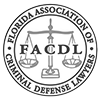Much of a criminal case involves criminal procedure. In other words, a charge is often supported by evidence; however, if evidence is not supported by legal procedure, this may be problematic for the prosecution’s case.
One of the most crucial pieces of evidentiary procedure involves the Fourth Amendment, which protects every person against unreasonable searches and seizures. Recently, the Supreme Court of the United States ruled on this topic with regard to dog sniffs and alerts. The Court was presented with the task of answering the following question: to what degree can dogs be used for a probable cause determination? The answer to this question sheds light on how such means can assist with a search of a suspect’s home, pursuant to the constitution.
The Court ultimately decided in a 5-4 decision that the use of a drug-sniffing dog outside a home of a suspect constitutes a “search,” which must be backed by probable cause or a warrant. Generally, probable cause exists when an investigator can determine that there is a fair probability that a crime has been (or is being) committed.
The Court’s recent decision evolved out of a Florida case. In November 2006, the Miami-Dade Police Department received a tip that a man was growing marijuana at his home. In accordance with the tip, authorities created a surveillance of the suspect’s home. Within the investigation, a canine officer approached the porch of the home with a dog. When the dog alerted to the presence of a drug, the detective knocked on the door of the home, seeking consent for a search.
No one responded to the knock. Therefore, the detective got a search warrant based on the dog alert and his own suspicions. When officers ultimately conducted a search, they seized several marijuana plants. A DEA agent arrested the man. The suspect was charged with trafficking more than 25 pounds of marijuana and grand theft for stealing more than $5,000 in electricity from Florida for growing lights.
The Florida Supreme Court felt that the evidence should be suppressed, and the U.S. Supreme Court agreed. Justice Scalia wrote for the majority, “The investigation [of the suspect’s] home was a ‘search’ within the meaning of the Fourth Amendment.” In other words, permitting a police dog to investigate the adjacent area of a home was breaching the parameters of the Constitution, and this action requires probable cause. Justice Scalia’s analysis stressed the importance of privacy around one’s home.
If you have been charged with a serious crime, you may have to question the legitimacy of any evidence brought against you. A qualified criminal defense attorney can assess whether evidence against you was obtained in violation of the Fourth Amendment.












